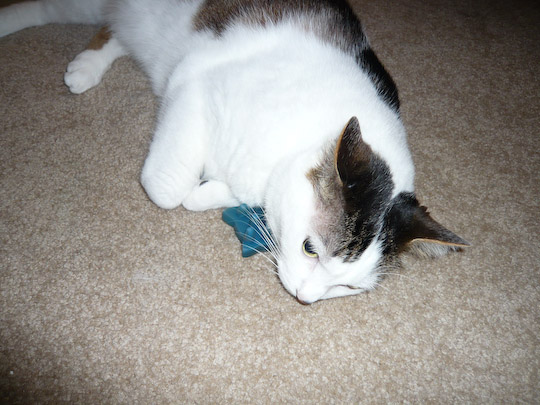
Mad Times
“To be sane in a mad time is bad for the brain, worse for the heart.” – Wendell Berry
- Administrivia (12)
- Bloggage (23)
- Book Reviews (70)
- Cat Blogging (84)
- Cooking (2)
- Event (4)
- Lost Gloves (32)
- Movie Reviews (10)
- Outrage (1)
- Personal Interest (14)
- Photo Log (98)
- Podcast (2)
- Shiny Gadgets (5)
- Soapbox (4)
- Techie-tech (6)
- Tiny Challenges (1)
- Transportation (9)
- Travelogue (1)
- Uncategorized (7)
- August 2017 (2)
- March 2016 (1)
- February 2016 (2)
- January 2016 (1)
- December 2014 (2)
- January 2014 (2)
- May 2013 (1)
- February 2013 (1)
- June 2012 (1)
- April 2012 (1)
- February 2012 (1)
- January 2010 (1)
- November 2009 (1)
- October 2009 (1)
- August 2009 (2)
- July 2009 (1)
- January 2009 (4)
- December 2008 (3)
- November 2008 (4)
- September 2008 (1)
- August 2008 (4)
- July 2008 (4)
- June 2008 (5)
- May 2008 (3)
- April 2008 (3)
- March 2008 (14)
- February 2008 (5)
- January 2008 (5)
- December 2007 (17)
- November 2007 (8)
- October 2007 (6)
- September 2007 (11)
- August 2007 (6)
- July 2007 (12)
- June 2007 (6)
- May 2007 (7)
- April 2007 (11)
- March 2007 (21)
- February 2007 (10)
- January 2007 (11)
- December 2006 (22)
- November 2006 (9)
- October 2006
- September 2006
- August 2006
- July 2006
- June 2006
- May 2006
- April 2006
- March 2006
- February 2006
- January 2006
- December 2005
- November 2005
- October 2005
- September 2005
- August 2005
- July 2005
- June 2005
- May 2005
- April 2005
- March 2005
- February 2005
- January 2005
- December 2004
- November 2004
- October 2004
- September 2004
- August 2004
- July 2004
- June 2004
- May 2004
- April 2004
- March 2004
- February 2004
- January 2004
- December 2003
- November 2003
- October 2003
- September 2003
- August 2003
- July 2003
- June 2003
- May 2003
- April 2003
- March 2003
The Golden Gate by Vikram Seth
I got this from the library after reading about it in the Writer’s Almanac on Seth’s birthday (June 20th). Their mention of the book said “It tells the story of the computer engineers working in Silicon Valley, developing the early version of the personal computer.” which sounded pretty cool, especially since it also mentions that the book is in the form of an epic poem. Well, the book is indeed in verse, but it has nothing to do with computer engineering. Fortunately by the time I got the book from the library I’d forgotten exactly why I’d been interested, so I wasn’t disappointed by the mistake until just now when I looked up the reference to write this review!
The book is set in the bay area starting around 1980 (published in 1986) and tells the story of an interconnected collection of friends as they stumble through various rather mundane adventures. Honestly, the story resembles nothing more than Armistead Maupin’s Tales of the City. What sets the book apart is the verse. The book is composed entirely of sonnets. The dedication is a sonnet. The acknowledgement section is a sonnet. The about the author blurb is a sonnet. Even the table of contents is a sonnet. And of course the main text is a series of sonnets. On the order of 600 of them (about 300 pages, two per page).
It sounds tiresome, but it’s actually rather delightful. Seth doesn’t take himself too seriously. Most of the rhyming is conventional, but every once in a while he throws in a rhyme that only works if you use very creative pronunciation. As I recall, this is a time-honored tradition. (I had a professor in junior college who insisted that the poem “Don Juan” be pronounced “Don Joo-un” because at one point Byron rhymes it with “new one”) The characters (a lawyer, a project manager, a divinity student, an artist, an activist) relate in all sorts of ways. There are children and lovers (of a couple different gender combinations, this is San Francisco after all) and parents and friends. There are house cats and even a pet iguana. If the plot is mostly soap opera and skids to a rather abrupt conclusion, I found it easy to forgive such minor failings in return for the fun I had reading the book.
I’d thought I might write this review in sonnet form, but I’m six books behind already, so no.
The Sharing Knife: Legacy by Lois McMaster Bujold
 The story of Fawn and Dag, begun in The Sharing Knife: Beguilement, picks up right where it left off. Which makes it hard to write a spoiler-free review with much of any content to it.
The story of Fawn and Dag, begun in The Sharing Knife: Beguilement, picks up right where it left off. Which makes it hard to write a spoiler-free review with much of any content to it.
But the plot isn’t really all that important. This book, like its predecessor, is all about character and setting. Sure, there is a plot, and it moves along nicely enough to keep the pages flipping by, but it’s not full of twists and turns, at least not ones that are very surprising. The fun of the book is seeing Fawn and Dag dealing with the complexities of Dag’s family and his duties as a Lakewalker.
I didn’t like this one as well as the first book. There isn’t that much new information about the world or about what the main characters are capable of. The ending sets up some interesting possibilities, though, so I’ll wait and see what the next book brings.
Freestyle

I know this looks like it was taken moments after the last cat picture I posted a couple of weeks ago, but you’ll have to trust me that they were taken almost two weeks apart. Sorry about posting so many sleeping pictures. I need to get the camera out on one of the rare occasions when they’re conscious.

